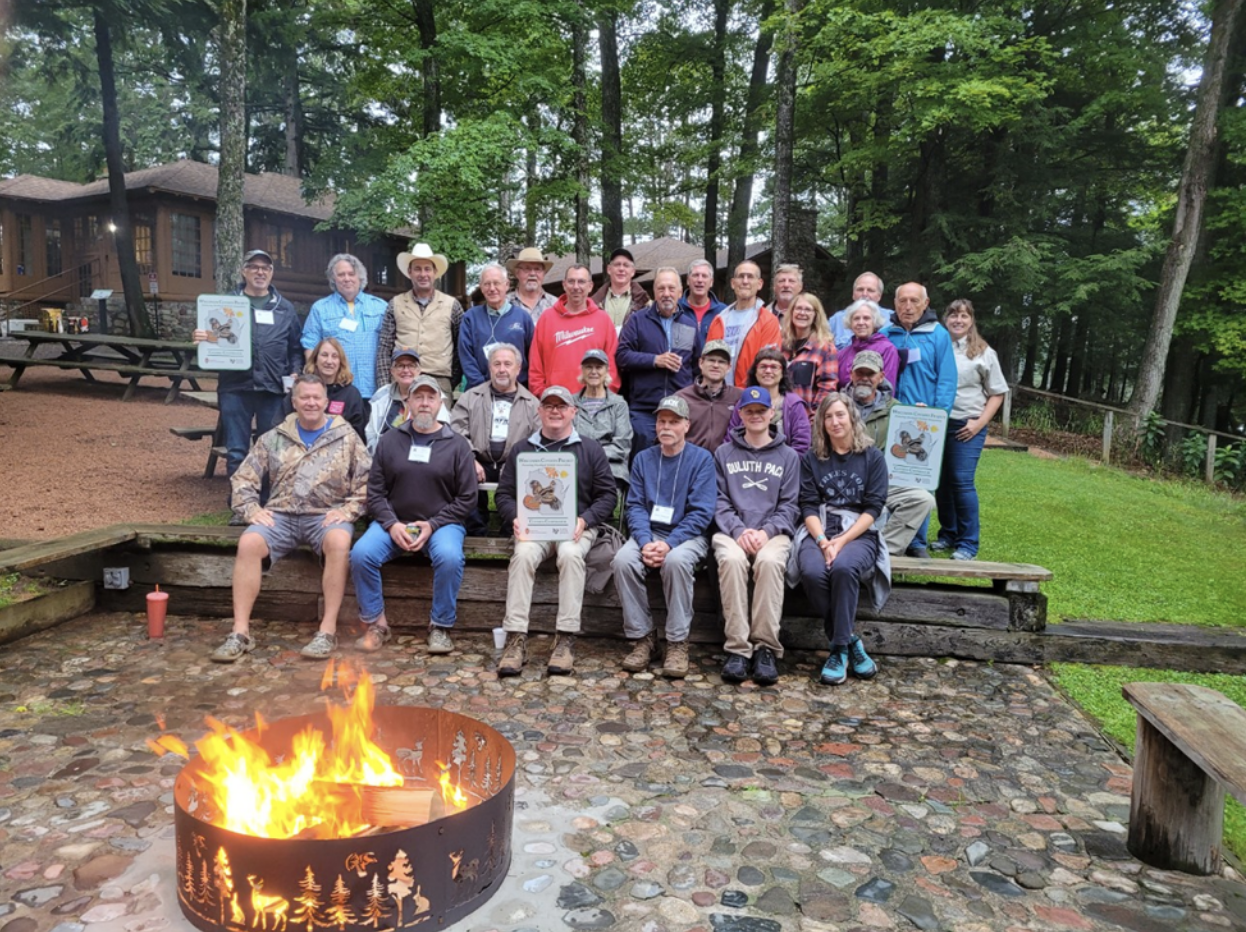The Wisconsin Coverts Project is a summer workshop held at Kemp Station in Woodruff, Wisconsin. Connecting Wisconsin and other midwestern landowners to resource management professionals, this immersive program aims to teach landowners how to manage their property and natural resources on their properties, Wisconsin Coverts Project state coordinator Jamie Nack said.
The Wisconsin Coverts Project began in 1994 as a collaboration between the Ruffed Grouse Society and the University of Wisconsin Department of Forest Wildlife Ecology. In the past 29 years, Nack said the program has hosted 822 Covert Cooperators, representing 689 properties altogether.
Nack said the main goal of the program is to help landowners create a written wildlife management plan tailored to each landowner’s property. The plan ideally includes the personal goals people have for their land and a step-by-step process to achieve these goals.
Participants answer questions asking what they want out of their land and what the land is used for, according to Nack. Along with a detailed management plan, participants will have connections to other resources that may further assist them.
Wisconsin Potato Council promises more research, better production
The workshop, however, is not held in a traditional classroom. The Wisconsin Coverts Project is an overnight program that resembles a summer camp but is tailored to adults, according to environmental blogger Denise Thornton in her article for My Wisconsin Woods.
Workshop participants spend four days at the UW Kemp Natural Resources Station. The workshop’s summer camp style includes dining halls and log cabins, as well as classrooms and research space. This unique design gives participants an immersive and intensive experience, according to UW Department of Forest and Wildlife Ecology professor Scott Bowe.
Nack said at the workshop participants listen to lectures from resource management professionals. The topics vary from timber care to non-native, invasive species. Some lectures take place in the Kemp Station classrooms while others are hosted around a campfire. In between lectures, participants go on field trips to other land plots to learn how to apply their new knowledge in a real-life setting.
USDA Forest Service natural resource specialist Ann Dassow has presented at the Wisconsin Coverts Project on and off for the last 12 years. She said she teaches landowners to identify, control and remove invasive species. Dassow also said she encourages participants to reach out to their neighbors when they are looking for invasive species to alert each other or for a second opinion on the find.
In Bowe’s 2021 Wisconsin Coverts Project workshop, he said he focused on teaching landowners how to harvest their timber sustainably and successfully, which products can be produced from timber and how to sell these timber products.
Participants have the opportunity to hear professional advice and carry out those conversations in an informal setting, Bowe said. During dinner or free time, participants are encouraged to ask questions about their land. The natural resource professionals are happy to go in-depth about specific questions participants may have, Bowe said.
“We get experts in the field of forest and wildlife to come to this program because they want access to private landowners as well,” Nack said. “They want to share that information.”
Presenters can learn from the participants as well, gaining new perspectives and techniques about land management, Dassow said. Conversations between participants provide information about techniques that have not worked for landowners and various solutions landowners may have come across.
UW community says goodbye to ant colony exhibit at Microbial Sciences
Approximately every five years after each workshop, an advanced training and reunion allow past participants to gain new information and ask even more questions. According to Nack, this allows them to further their education on land management.
“It’s really humbling to know that there are people who care so much about the stewardship of their private land … and just how like-minded the whole group tends to be,” Nack said.
The Wisconsin Coverts Project is a unique workshop that offers landowners the knowledge and resources to sustainably maintain their properties, Bowe said. With experts and well-established relationships, participants can gain an abundance of information from this program. The Wisconsin Idea to spread knowledge is reflected in this project.
To participate in the Wisconsin Coverts Project, prospective candidates must apply. The participants are chosen not for the amount of land they own but for their connection to their community.
One important goal of the program is that the participants will pass on the knowledge and skills they have learned by educating their community, Nack said.
“We’re hoping that these people go out and actually teach what they learned to other landowners,” Bowe said. “We’re hoping that they help others make these informed decisions.”


















